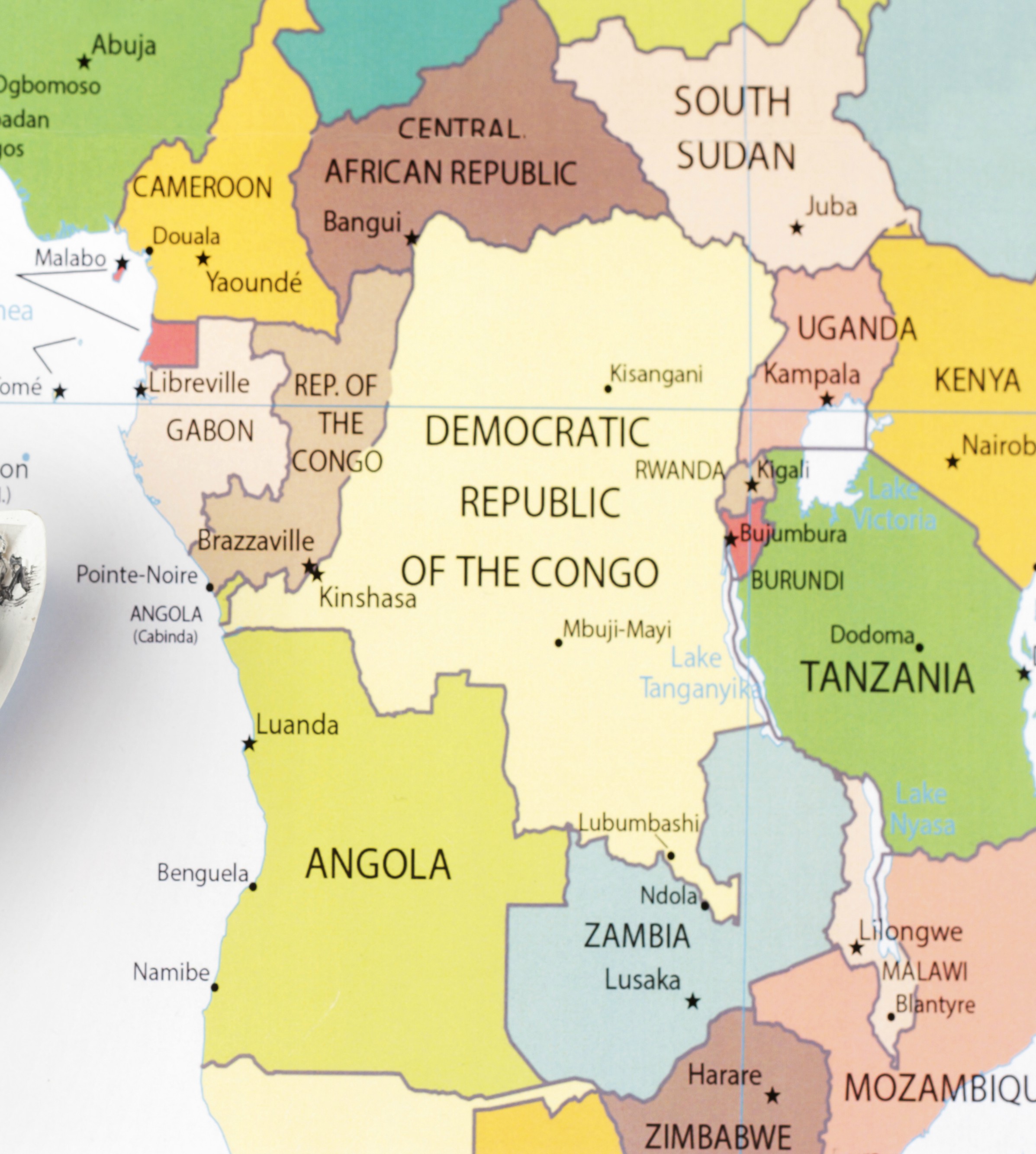Kenya continues to build Islamic finance as its regional ‘competitive advantage’
Kenya is positioning itself as a hub for Islamic finance, aiming to lead in the region of East Africa and across Middle Africa.
A predominantly Christian country with a minority 11% Muslim population, Kenya’s financial sector has been home to Islamic banks and takaful operators for more than a decade.
The East African nation is now working on a number of initiatives to further develop its domestic sector, including an industry framework, a sovereign sukuk issuance, and financial education.
These build on what it started in the financial year 2017/18 when Islamic financing was highlighted in the Budget Statement as an area for Kenya to “maximize its comparative advantage and position itself as a regional hub for Islamic finance products, in order to attract foreign direct investment.”
“Islamic finance is one of the key areas that have been identified by the Kenya Government to help put the country head-and-shoulder above its peers within the region,” Luke Ombara, director of regulatory policy and strategy at the Capital Market Authority (CMA), told Salaam Gateway.
“To this end, key strategic documents including the National Treasury’s Strategic Plan have prioritized the issuance of relevant products and services to deepen this system of finance in Kenya.”
 Map: Kenya's regional hub for Islamic finance ambition covers countries in Middle Africa, including Camerron, Democratic Republic of Congo and Central African Republic.
Map: Kenya's regional hub for Islamic finance ambition covers countries in Middle Africa, including Camerron, Democratic Republic of Congo and Central African Republic.
BUILDING ON EXISTING FRAMEWORK
The drive for Islamic finance dates back to the 1990s when the Central Bank of Kenya started receiving enquiries from prospective investors, according to Ombara.
By 2004, the first application for an Islamic Bank—First Community Bank (FCB)—was received.
Today, Islamic finance is an area of development in the country’s Capital Markets 2014-2023 Masterplan (CMMP), which is itself a flagship project in Kenya’s Vision 2030.
Ombara said the government plans to:
- Issue a Sovereign Sukuk (Treasury or Eurobond) depending on its analysis of the level of demand and its expenditure targets. Ombara said this will be done “at an opportune time”.
- Formulate a national policy on Islamic finance,
- Determine the appropriate terminology for ‘Islamic finance’ to be used by Kenya,
- Determine the preferred national governance framework for Kenya,
- Develop an education and awareness strategy to demystify Islamic finance to enable potential investors appreciate its value proposition.
There have been consultations, discussions, seminars, and workshops to establish consensus on some of the outstanding policy issues, according to Ombara, and there have also been engagements that would ultimately lead to the formulation of a national policy on Islamic finance.
Ombara conceded that the main challenges facing Kenya’s Islamic finance industry are low levels of awareness on what Islamic finance is and how it works, as well as caution due to religious undertones as manifested by key terminology.
He further explained that the determination of the preferable governance framework and a shortage of experienced Shariah scholars was also another challenge to the industry’s advancement.
“Kenya is in active consultation with international Islamic finance bodies to help develop standards for the operation of this system of finance that meet the international threshold,” said Ombara.
To this end, the country’s Capital Markets Authority and the Central Bank of Kenya became members of the Malaysia-based Islamic Financial Services Board (IFSB) in 2016.
SOVEREIGN SUKUK
As part of the development of the Islamic finance industry, Kenya plans to issue sovereign sukuk. This was in the Budget speech of 2017/18 when it was described as “an alternative source of financing” for the country’s development projects. At the time, the cabinet secretary for the National Treasury said the intention was to “amend the tax statutes to provide for equivalent tax treatment” for sukuk.
Ombara confirmed that the amendments have been made.
“The Government has a plan to issue sukuk,” said Ombara. “The time/date of issuance will be determined by a number of factors including Kenya’s Debt to GDP targets, the macro-economic environment and its expenditure targets, among others.”
But he said there are challenges with regards to the upcoming potential sukuk issuance including the special purpose vehicle (SPV) establishment (offshore).
Other key challenges include asset backing and liquidity as well as few qualified domestic scholars and differing scholar opinions.
Ombara explained that bad publicity with regards one Islamic bank also added to the challenges, referring to the placement under statutory management in 2016 and ultimate buy-out in 2019 of Chase Bank Kenya Limited.
The COVID-19 pandemic and technical terminology also pile on the work for the sukuk issuance.
BANKS AND TAKAFUL
There are currently three full-fledged Islamic banks operating in Kenya:
- First Community Bank (FCB), which was established in May 2007, was the first to offer Shariah-compliant products in January 2008.
- Gulf African Bank, which was established in September 2007 and began operating in January 2008.
- DIB Bank (DIBBKE), a subsidiary of Dubai Islamic Bank, was incorporated in 2014 and began activities in May 2017.
Conventional lenders also offer Islamic banking products via windows.
- The first was Absa Kenya which started offering Islamic banking products in 2004, under the brand name of “La Riba.”
- In 2007, Kenya Commercial Bank (KCB) opened an Islamic window and began offering Islamic products under the brand name “Amana”.
- In 2009, the National Bank of Kenya (NBK) opened an Islamic window under the brand name “Al muumin” which became “National Amanah” in 2013.
- International banks operating in Kenya also offer Shariah-compliant banking solutions. In 2014, Standard Chartered Bank of Kenya established an Islamic window under Saadiq .
Ombara said the government “has no problem” if more Islamic financial institutions were set up in the country, “as long as they meet the set minimum criteria”.
“If and when there is interest from the market and an application is actually received by the Central Bank of Kenya (either for a fully-fledged or window) that application will be considered on its own merit,” said Ombara.
In addition to banks, Kenya has also introduced takaful services.
- At present there is the standalone Islamic insurer Takaful Insurance of Africa.
- The other is Kenya Re which operates a re-takaful service via a window.
Ombara said the government is open to new takaful and re-takaful companies to establish operations but that it will depend on a case-by-case basis.
“If and when there is interest from the market and an application is actually received by the Insurance Regulatory Authority (IRA), that application will be considered on its own merit,” he said.
OTHER ISLAMIC FINANCIAL INSTITUTIONS
Kenya has also established Islamic capital market players, pension funds and cooperatives, noted Ombara.
Among the capital market players are the Shariah-compliant Collective Investment Scheme (CIS) by Genghis Capital, investment banking services by Salaam Investment Bank, a foreign company incorporated in Kenya and licensed by the CMA.
The country has two Islamic pension funds, the first being County Pension Fund’s (CPF) Shariah-compliant pension scheme known as ‘Salih’. The second was the Local Authorities Fund (Lapfund) ‘Amal’.
Adding to these, there are also Islamic cooperatives Taqwa Sacco and Crescent Takaful Sacco.
With regards a centralised national Shariah-board similar to jurisdictions like Malaysia, Ombara said that consensus has not been reached on the Islamic governance model that should be adopted by Kenya.
FINTECH
In addition to traditional Islamic banking services, Kenyan authorities are also keen to utilise fintech to advance the domestic industry.
“Kenya is one of the world leaders in driving financial inclusion through the fintech solutions such as M-PESA, Mula, PesaLink and Pesapal,” said Ombara. “The adoption of such innovations is facilitating transactions and spurring trade for corporations, small and medium enterprises (SMEs) and individuals.”
He said the country already has a Blueprint that identifies five pillars as it moves towards a full digital economy. The aim is a nation where every citizen, enterprise and organization has digital access and the capability to participate and thrive in the digital economy.
“Fintech will therefore most likely play an increasingly fundamental role in improving uptake of Islamic finance products and services in Kenya,” Ombara added.
FUTURE
Kenya has ambitions of becoming a newly industrializing, middle-income country providing a high quality of life to all its citizens in a clean and secure environment by 2030, said Ombara. To achieve this goal, the country has lined up a number of projects.
“[To this end], Islamic finance has been identified as one of the key areas that Kenya has a competitive advantage regionally,” he said. “Islamic finance will therefore provide a springboard for Kenya’s economy to achieve its targeted growth rate as an avenue towards a high quality of life.”
“Over the next three to five years, Kenya aims to establish itself as a key regional player, attracting capital from major jurisdictions (including Gulf Cooperation Council countries) for investment that would fund its ambitious projects that would lead to the attainment of its Vision 2030.”
(Reporting by Hassan Jivraj; Editing by Emmy Abdul Alim [email protected])
© SalaamGateway.com 2020 All Rights Reserved
